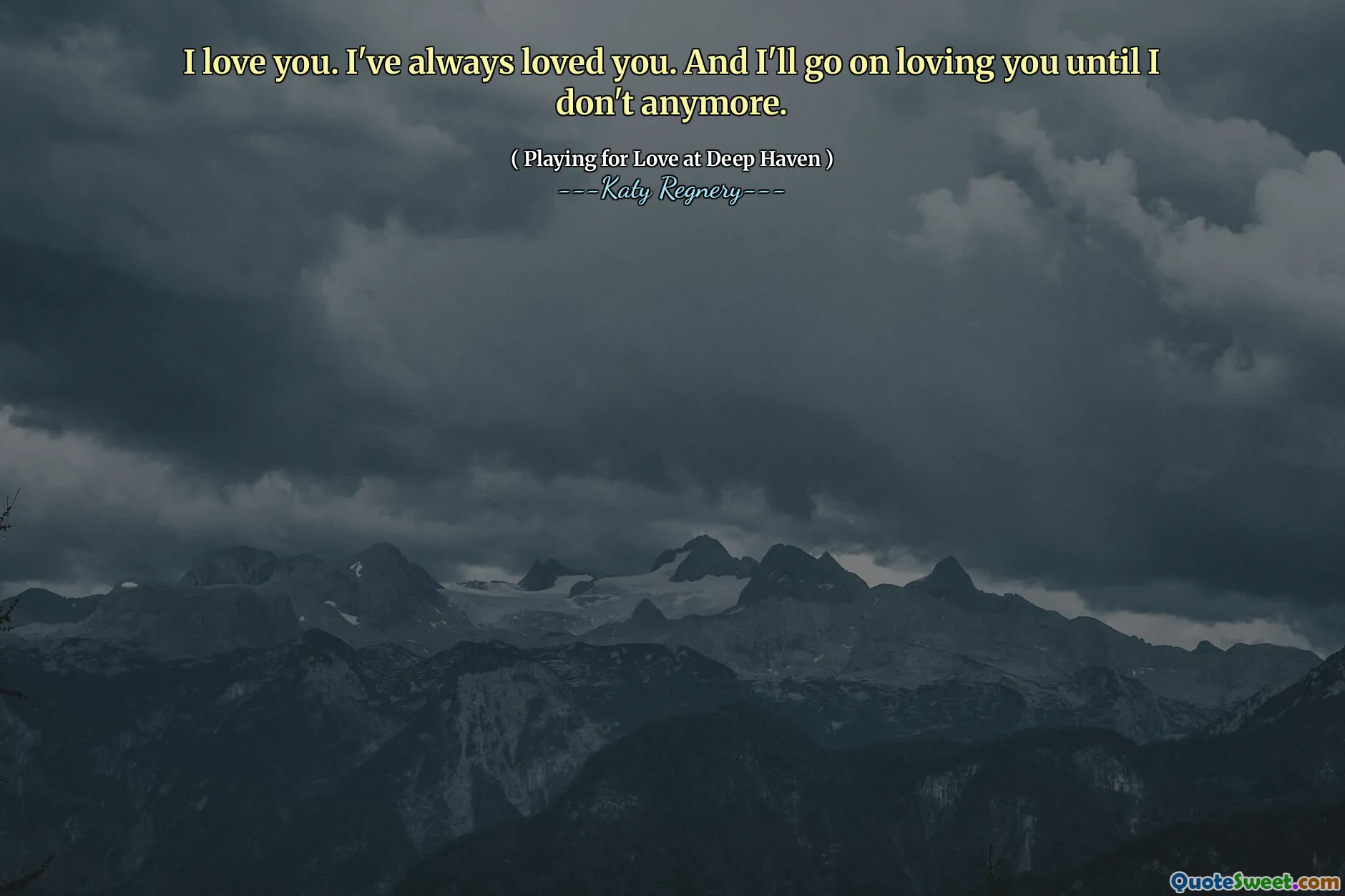
I love you. I've always loved you. And I'll go on loving you until I don't anymore.
This quote poignantly captures the complex and evolving nature of love. At first, it expresses a timeless and unconditional affection—"I've always loved you"—highlighting how love can be a constant presence in someone's life, seemingly unchanging and enduring. However, the latter part introduces a stark realism: "And I'll go on loving you until I don't anymore." This admission acknowledges that love, while deeply powerful, is not guaranteed to last forever. It subtly confronts the impermanence that can mark human emotions and relationships.
The quote eloquently balances idealistic devotion with honest vulnerability, showing that true love encompasses both passionate commitment and the humility to accept change. It suggests love is not merely a static feeling, but a dynamic experience that may evolve, diminish, or even end. Such an expression invites us to cherish love as it exists in the present moment without assuming it will remain unchanged indefinitely.
Furthermore, this sentiment could resonate deeply for anyone navigating the complexities of long-term relationships, where the initial intensity of affection often encounters trials, growth, and transformation. Rather than shying away from the potential for love to fade, the quote embraces it as part of the human experience.
In the context of Katy Regnery's "Playing for Love at Deep Haven," it likely mirrors the vulnerability and emotional truths of the characters, reflecting the bittersweet dance of holding on and letting go. Ultimately, this quote reminds us that love's power lies not only in its permanence but also in its honesty and lived reality.






